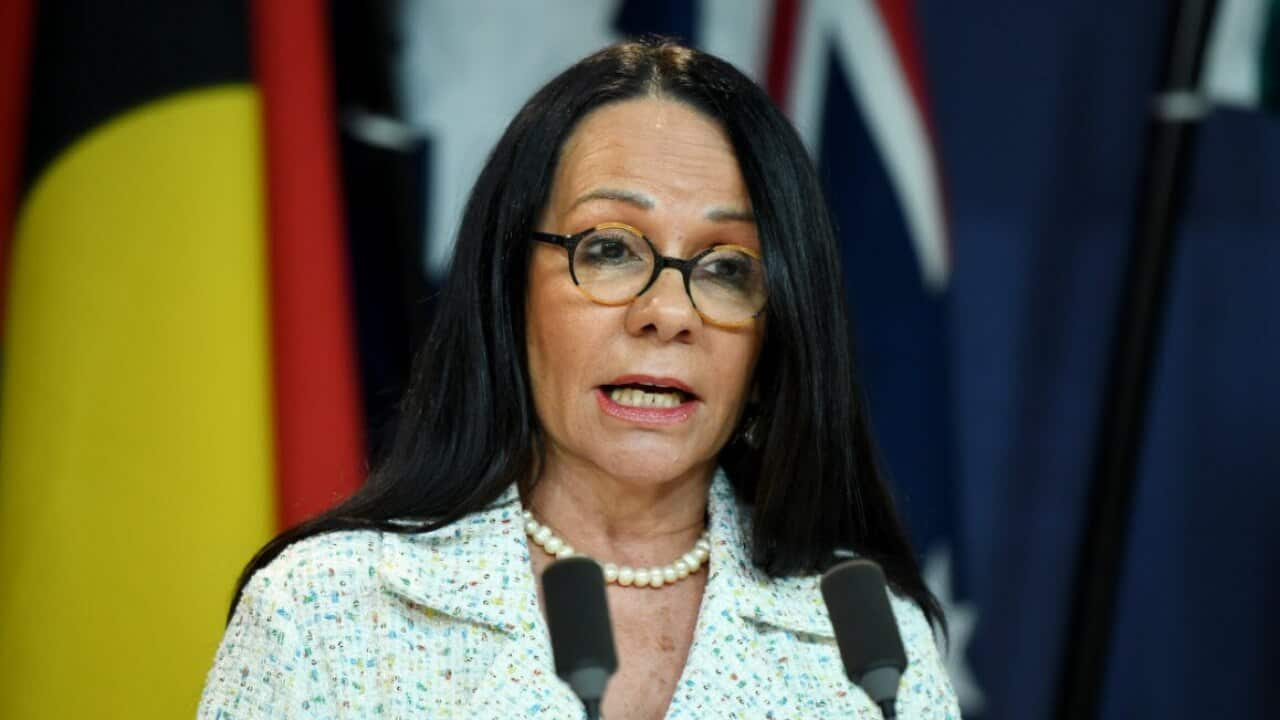The current Caretaker of the Tent Embassy has expressed her strident opposition to the Uluru Statement from the Heart, saying the proposition is a futile exercise.
Gomeroi woman Gwenda Stanley appeared on the ABC's Q&A program last night, questioning panellists including the new Minister for Indigenous Australians Linda Burney on the concrete benefits First Nations people stood to gain from the Voice to Parliament.
Ms Stanley, who said she was one of the stakeholders excluded from the 2017 summit that drafted the Statement, said the Voice would not materially benefit Aboriginal and Torres Strait Islander people.
"We do not support the Uluru Statement," she said.
"For 30 years we've been reconciling, 232 years we've been reconciling... Why are we still trying to integrate into a system that systemically oppresses us?"
Instead, Ms Stanley advocated for a decentralised system of consultation divorced from the parliament, and which engaged existing First Nations bodies around the country.
"We need open dialogues. We need more communication on the grassroots, not hand-picked selective representative bodies that are still controlled and dictated by government," she said.
"... Come to the Aboriginal Tent Embassy, sit with us and take it back to the people."
Minister Burney said she would actively listen to opinions such as those of Ms Stanley.
"It will be my job as the Minister for Indigenous Australians to bring people together, to listen to people that disagree with the Uluru Statement, to listen to people that agree and try and find common ground," Ms Burney said.
"That is what's important.
"It would be absolutely wrong not to listen to everyone's voices." The Labor Party campaigned on bringing forward a referendum within its first term of government.
The Labor Party campaigned on bringing forward a referendum within its first term of government.

Minister for Indigenous Australians Linda Burney has said she will listen to dissenting voices on the Uluru Statement. Source: AAP Image/Mick Tsikas
New prime minister Anthony Albanese reaffirmed that commitment in the opening remarks of his victory speech last month.
But Ms Stanley questioned both the government's and the wider community's support for altering the constitution.
"I would like to know what is in this constitution and how will it benefit us as Aboriginal people in this country.
"Does anyone else know what they're voting for because last time I sat at a Labor women's rank-and-file [meeting] last year and not one of those Labor members could tell me what was in the constitution.
"And you are only of the interest of the Crown. Where is the interest of us as Indigenous Australians?"
'Holocaust, genocide'
Ms Stanley rebuked the structures of Australian society, underpinned by white supremacy, which have seen First Nations people around the country systematically reduced.
"People are still living on the concentration camps — you call them communities, they are actually concentration camps in this country," she said.
"The Holocaust happened here in Australia, and it needs to be addressed.
"And we do that by coming to an agreement on our terms, not on government terms."
The comments echo similar positions taken by Victorian Greens senator Lidia Thorpe, whose party has adopted the position that a treaty should precede any constitutionally enshrined Voice.
However, in comments made after the election, Senator Thorpe said the Greens would not stymie the government's efforts at a successful referendum on the issue.
"The Greens want action for First Nations people, including a Truth and Justice Commission to begin acknowledging the violence and dispossession of this land's first peoples, as well as progress towards a Treaty, to complement Labor's commitment to progress the Voice to Parliament," she said.
"We also need to see this government commit to urgent tangible action for First Nations people in healthcare, in the justice system, in caring for country and in reparations for survivors of the Stolen Generation."












